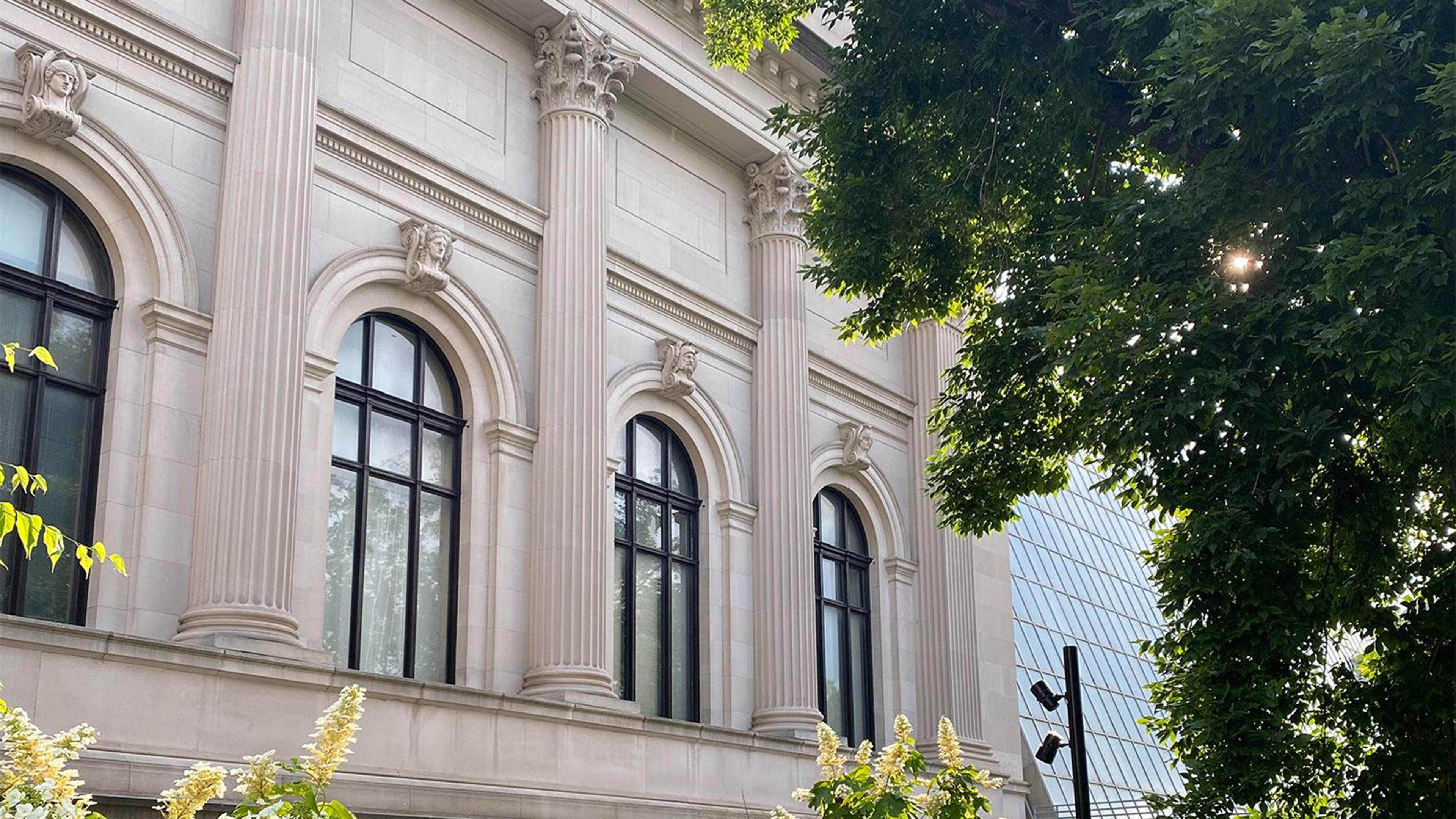The Department of Scientific Research at the Metropolitan Museum of Art in New York City is pleased to organize the 16th International Conference on Indoor Air Quality in Heritage and Historic Environments, IAQ 2024. The conference is a forum for discussions on the influence of indoor air quality on objects in museums, libraries, and archives. It is traditionally attended by a diverse audience of conservators, curators, scientists, students and other stakeholders.
IAQ 2024 will be held in a hybrid format; we encourage all attendees to join us in New York City at The Metropolitan Museum of Art. Talks and posters will also be streamed online for participants who cannot attend in person.
We look forward to welcoming you to New York!
Important Dates
Abstract Submission Deadline: June 2, 2024
Author Notification: July 5, 2024
Program Published Online: August 5, 2024
In-Person Registration Deadline: October 7, 2024
Virtual Registration Deadline: November 11, 2024
Pre-Conference Tour: November 18, 2024
Conference Dates: November 18–20, 2024
Location
The Metropolitan Museum of Art Fifth Avenue, 1000 5th Avenue, New York, 10028
Schedule
Monday, November 18, 2024
Afternoon (TBC): Tours at The Met. Limited availability. We will contact registered attendees for signup. Talks will commence on Tuesday.
Tuesday, November 19, 2024
9–9:30 am: Registration
9:30–9:45 am: Welcome and introduction
- Welcome, Eric Breitung
- History of indoor air / preventive conservation science at The Met, Elena Carrara
9:45–11:30 am: Session: Method Development for Material Testing
- The impact of indoor air quality on the preservation of photographic archives: A case study from the Egyptian Museum, Cairo, Egypt, Rasha Shaheen (TBC)
- Benchmarking the Oddy Test: Investigations of single and mixed chemical solutions using The Metropolitan Museum’s Oddy Testing Protocol, Julia Bakker Arkema
- Valida on of the accelerated MAT-CH test for pollutant control in museums and collections (MAT-CH 3.0), Alexandra Jeberien
- Progress on the development of a paper degradation sensor, Eric Conte
11:30 am–12:00 pm: Flash poster presentation
12:00–1:00 pm: Lunch
1:00–2:15 pm: Session: Corrosion of Metals by Indoor Pollutants
- Connecting Oddy and GC-MS results: Providing definition to chemical intuition, Michael Samide
- Screening for sulfur: Methods to detect Reduced Sulfur Compounds and evaluate their corrosion risk, Rose King
- The use of lead in ISO 11844 for determining indoor air corrosivity, Morten Ryhl Svendsen
2:15–3:30 pm: Poster session
3:30–5:15 pm: Session: Degradation of Collection Objects
- The key role of non-volatile organic acids in historical paper, Irena Kralj Cigic
- Determination of acidic emissions from heritage PVC objects, Tjaša Rijavec
- Gaseous sulfur compounds from objects: Generation of “Black spots” on bronze and emission of H2S and COS from various artefacts excavated from a marine archaeological site, Rika Kigawa
- Organic pollutants in museums and their relationship with iron corrosion, Ren Xiaopeng
Wednesday, November 20, 2024
9–9:30 am: Coffee
9:30–10:45 am: Session: Sustainability and Climate
- PM deposits on calcareous stone heritage: What are they, how they differ seasonally and are they dangerous?, Eva Menart
- Pollution control and sustainability, David Thickett
- Monitoring air quality at The Met Cloisters, Jana Butman
10:45–11 am: Coffee break
11 am–12:15 pm: Session: Risk Mitigation
- Time-resolved investigations on the effectiveness and capacity of air pollutant sorbers regarding the mitigation of acetic acid, Amelie Stahlbuhk
- Advanced (multi-)methods for safe handling of biocide-contaminated objects: Findings from the MUSA pilot study, Dr. Elise Spiegel
- Bridging cause and effect: A holistic approach to risk assessment in heritage conservation, Olivier Schalm
12:15–12:30 pm: Closing remarks
Abstract Submission
Abstract submission is now closed.
Scientific Committee
Dario Camuffo, National Research Council – Institute of Atmospheric Sciences and Climate, Padua, Italy
Lorraine Gibson, University of Strathclyde, Glasgow, UK
Martina Griesser, Kunsthistorisches Museum, Vienna, Austria
Eva Menart, National Museum of Slovenia, Ljubljana, Slovenia
Morten Ryhl-Svendsen, The Royal Danish Academy of Fine Arts, Copenhagen, Denmark
Olivier Schalm, University of Antwerp, Belgium
Tomasz Sawoszczuk, Cracow University of Economics, Cracow, Poland
Alexandra Schieweck, Fraunhofer Wilhelm-Klauditz-Institute WK, Braunschweig, Germany
Ludmila Maskova, Institute of Chemical Process Fundamentals ASCR, Prague, Czech Republic
Matija Strlič, UCL Institute for Sustainable Heritage, London, UK and University of Ljubljana, Heritage Science Laboratory Ljubljana
Irena Kralj Cigić, University of Ljubljana, Heritage Science Laboratory Ljubljana
Jean Tétreault, Ottawa, Canada
David Thickett, English Heritage, London, UK
Organizing Committee
Eric Breitung, Department of Scientific Research, The Metropolitan Museum of Art
Julia Bakker-Arkema, Department of Scientific Research, The Metropolitan Museum of Art
Rose King, Department of Scientific Research, The Metropolitan Museum of Art
